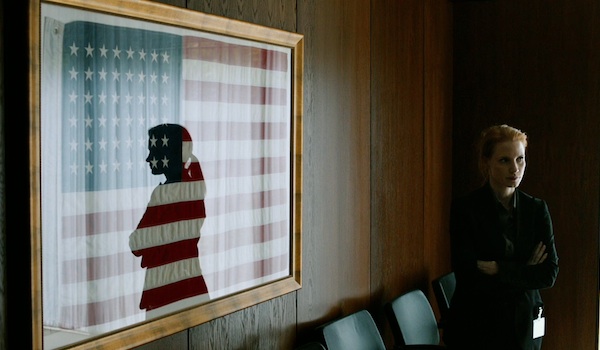Argo vs. Zero Dark Thirty

Remember back in October when Ben Affleck’s Argo hit theaters and became the film critics and audiences could actually agree was best? Remember when this historical procedural crossed the $100 million mark at the box office—unfathomable success for a film like this? Remember when Roger Ebert, after viewing the film at the Toronto International Film Festival, declared the Best Picture race over?
We were so young.
A shiny new toy called Zero Dark Thirty has come along and “Buzz Lightyear-ed” Argo, the film world’s equivalent of Woody. Kathryn Bigelow’s historical procedural has swooped in late in the game to steal the top prize from both the National Board of Review and the New York Film Critics Circle. It won’t have Argo‘s box office—not by a long shot. But that hardly matters at this point. The prize fight between these two films took place last week, and Bigelow’s scored a knockout in just two rounds.
The film still has its fans. The NYFCC still clearly loved Argo; It took home the group’s proverbial silver medal. And NBR named it among its ten favorite films of the year. Its box office will definitely come into play (though one could argue Lincoln‘s will ultimately be a bigger story), but its momentum seems dead. Kaput. And there aren’t any clear signs of an upcoming resurrection.
So how did we get here?
Warner Bros., no doubt, is regretting its decision to release Argo in early October. This might have worked for other films in the past. The Departed, for example, was an early October release back in 2006, but that film’s competition pales in comparison to what Argo is going up against this year. There’s a reason most studios hold their big Oscar plays until late in the year: You need to keep people talking about your film through February, and it’s always easier to do that when you’re the last one out of the gate.
There’s probably something to be said, also, about the nature of Oscar politicking. When Argo became such a consensus film so early in the game, its opponents and detractors attacked. “It’s so contrived!” “These characters are paper-thin!!” “THIS FILM IS RACIST!!!”
One could argue some of these criticisms are warranted, but it seems clear now the seeds of doubt have sprouted. It’s not as if the eventual Best Picture winner sails through the season unscathed (quite the opposite is true, actually), but to start taking hits as early as Argo did can derail a campaign.
But you can’t talk about the decline of Argo without discussing the somewhat surprising rise of Zero Dark Thirty. It’s not as if Bigelow’s film came out of nowhere like her last film, The Hurt Locker, did. It’s been pegged as a potential Oscar player all year. That said, it’s been shrouded in mystery since it was announced; We didn’t even catch a glimpse its characters until its second trailer hit around October.
The story of the film is its intensity—no surprise considering the style of The Hurt Locker. The rousing raid on Bin Laden’s compound is, according to those who’ve seen it, very visceral. Bigelow employs a “you-are-there” approach that, by all accounts, differs greatly from Affleck’s slick, more traditional, more Hollywood approach to a covert mission in the Middle East.
Also earning praise is the cold, calculated, fact-driven way Bigelow and screenwriting partner Mark Boal tell their story. “This is movie journalism that snaps and stings,” said Time‘s Richard Corliss in the film’s first official review (also its first of many unequivocal raves). Stunningly, this film that focuses primarily on process also features a protagonist—Jessica Chastain’s Maya—who’s as vivid as any character this year. What say you, Argo fans?
As far as the politicking goes, it’s interesting to see Zero Dark Thirty fend off attacks the way Argo seemed unable to earlier this year. Some writers are claiming the film glorifies torture. Fans of the film, of course, are coming to its defense, saying Bigelow’s approach is hands-off; She and Boal don’t confirm or deny torture’s effectiveness in the hunt for bin Laden. She merely states that it happened.
The biggest difference between the attacks on Argo and Zero Dark Thirty, from where I sit, is that we’ve all lived through the torture question. We’re still living through it, actually. The politics of the Iran hostage crisis are fodder for history books. In some ways, Zero Dark Thirty might contribute to the discourse. Argo, meanwhile, is a snapshot of a dark moment in our history, and the way he elects to tell the tale, though packed with tension and skill, is a lot more fantastical—and easier to ridicule.
Ultimately, Argo is still going to get a Best Picture nomination. Ben Affleck is still in for Best Director. And Zero Dark Thirty is far from the clear frontrunner (there isn’t one, but it’s probably in a three way tie at the moment with Lincoln and Les Miserables). But unless some awards bodies boost Argo in a big way over the next few weeks, Ebert’s prediction will be wrong and Affleck will travel to the Dolby Theatre in February just happy to be nominated.














One Response to Argo vs. Zero Dark Thirty